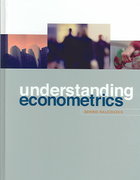Question
Suppose that two software companies launch a new software each. One of them is called COOL, the other GREAT. There is a unit mass of
Suppose that two software companies launch a new software each. One of them is called COOL, the other GREAT. There is a unit mass of consumers. All of them consider the two software offers as identical. Both softwares are produced at zero marginal costs and consumers are willing to pay r for the software.
(a) Suppose that firms set prices and compete only in one period. Characterize equilibrium prices, allocation and profit. (If a group of consumers is indifferent suppose that half of them buys software COOL and the other half GREAT.)
(b) Suppose that each firm sold to half of the consumers their software and that they launch new products COOL2 and GREAT2. Consumers are willing to pay r for the new products. Suppose, however, that consumers who buy the product from a different firm than in the first period incur a disutility . Suppose firms set prices. Characterize equilibrium prices, allocation and profit. Does an equilibrium (in pure strategies) always exist? Discuss.
(c)Consider now the market environment in which the firm that produces COOL in period 1 and COOL 2 in period 2 is aware of the fact that it will launch COOL2 in period 2. Does this affect its incentive in period 1? In particular, does it have an incentive to deviate from the price calculated in (a)? (NOTE: Suppose that there is no discounting.)
(d) Suppose now that consumers who bought COOL will not consider buying GREAT2 in period 2 and that consumers who bought GREAT will not consider buying COOL2 in period 2. Characterize the subgame perfect equilibrium in the twoperiod model. (Again, suppose that there is no discounting.)
Step by Step Solution
There are 3 Steps involved in it
Step: 1

Get Instant Access to Expert-Tailored Solutions
See step-by-step solutions with expert insights and AI powered tools for academic success
Step: 2

Step: 3

Ace Your Homework with AI
Get the answers you need in no time with our AI-driven, step-by-step assistance
Get Started


